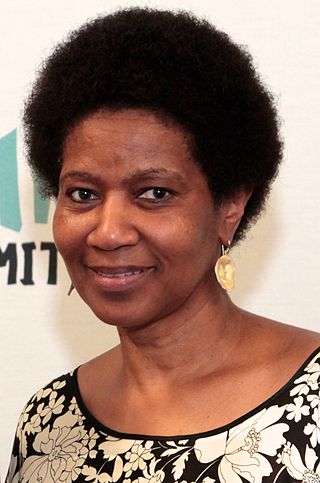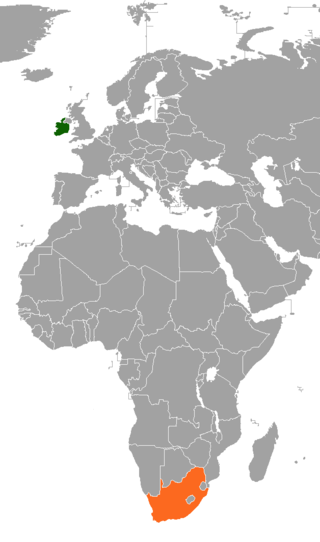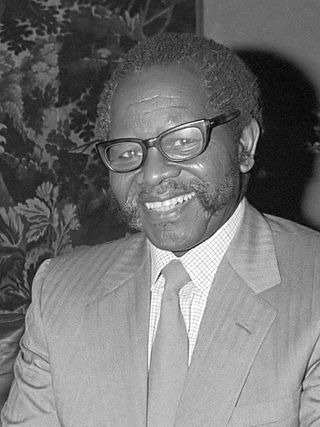| |||||
| Decades: | |||||
|---|---|---|---|---|---|
| See also: | |||||
The following lists events that happened during 2005 in South Africa.
| |||||
| Decades: | |||||
|---|---|---|---|---|---|
| See also: | |||||
The following lists events that happened during 2005 in South Africa.
The Cabinet, together with the President and the Deputy President, forms part of the Executive.

Bulelani T. Ngcuka is a South African attorney, prosecutor and activist, who served as the first Director of Public Prosecutions in South Africa, and is the husband of former Deputy President of South Africa Phumzile Mlambo-Ngcuka.
The following lists events that happened during 2003 in South Africa.

Phumzile Mlambo-Ngcuka is a South African politician and former United Nations official, who served as the Executive Director of UN Women with the rank of Under-Secretary-General of the United Nations.
The Schabir Shaik trial was an important court trial in post-apartheid South Africa. The case, tried in the Durban and Coast Local Division of the High Court before Judge Hilary Squires, established a fraudulent and corrupt relationship between Durban-based businessman Schabir Shaik and former South African leader Jacob Zuma.
The following lists events that happened during 2006 in South Africa.

Angela Thokozile Didiza is a South African politician serving as Speaker of the National Assembly since 14 June 2024. A member of the African National Congress (ANC), she was formerly the Minister of Agriculture, Land Reform and Rural Development between May 2019 and June 2024. She served an earlier stint in the cabinet between 1999 and 2008.
The following lists events that happened during 2007 in South Africa.

Dutywa, also known as Idutywa, is a town in Mbashe Local Municipality, Eastern Cape province, South Africa, that was founded in 1858 as a military fort after a dispute between a Natal Colony raiding party and its local people. It is named after the Dutywa River, a tributary of the Mbhashe River. The name means "place of disorder" in the Xhosa language; its spelling was officially changed from "Idutywa" to "Dutywa" on 16 July 2004. The settlement was laid out in 1884 and was made a municipality in 1913. The town is the birthplace of former South African President, Thabo Mbeki.

The second cabinet of Thabo Mbeki was the cabinet of the government of South Africa from 29 April 2004 until 24 September 2008. It was in office for the duration of Mbeki's second term in the South African Presidency, which lasted between the 2004 general election and Mbeki's resignation from office on 24 September 2008.
The National Executive Committee (NEC) of the African National Congress (ANC) is the political party's highest decision-making body in between its party conferences. It serves as the primary executive organ responsible for leading and governing the ANC, directing the party's policies, strategies, and overall operations. The NEC is elected every five years at the ANC's National Conference and consists of 87 members, including the party's top officials, such as the president of the ANC, deputy president, chairperson, secretary-general, two deputy secretaries-general, and treasurer-general.
The following lists events that happened during 2008 in South Africa.

There is a historical and current bilateral relationship between Ireland and South Africa. Both countries have established embassies in the territory of the other, in Dublin and Pretoria.
An indirect presidential election was held in South Africa on 25 September 2008 following the resignation of the President Thabo Mbeki. The ruling party, the African National Congress (ANC), with a two-thirds majority in the National Assembly of South Africa, elected Kgalema Motlanthe as president. The ANC indicated that Motlanthe would be a "caretaker" president until the 2009 election, after which ANC president Jacob Zuma would take office.

The cabinet of Kgalema Motlanthe was the cabinet of the government of South Africa between 25 September 2008 and 9 May 2009. It was constituted by Motlanthe after his election on 24 September and served until after the April 2009 general election. It replaced the cabinet of former President Thabo Mbeki, who had resigned from office at the instruction of his political party.

The Congress of the People (COPE) is a South African political party formed in 2008 by former members of the African National Congress (ANC). The party was founded by former ANC members Mosiuoa Lekota, Mbhazima Shilowa and Mluleki George to contest the 2009 general election. The party was announced following a national convention held in Sandton on 1 November 2008, and was founded at a congress held in Bloemfontein on 16 December 2008. The name echoes the 1955 Congress of the People at which the Freedom Charter was adopted by the ANC and other parties, a name strongly contested by the ANC in a legal move dismissed by the Pretoria High Court.

The nations of Mexico and South Africa established diplomatic relations in 1993. Bilateral relations between both nations have been characterized by a good level of political dialogue and by the mutual recognition of the leadership and involvement exercised by both countries in their respective regions.

Operation Vula was a secret domestic programme of the African National Congress (ANC) during the final years of apartheid in South Africa. Initiated in 1986 at the ANC headquarters in Lusaka and launched in South Africa in 1988, its operatives infiltrated weapons and banned ANC leaders into the country, in order to establish an underground network linking domestic activist structures with the ANC in exile. It was responsible for facilitating the only direct line of communication between ANC headquarters and Nelson Mandela, who at the time was imprisoned and was discussing a negotiated settlement with the government on the ANC's behalf. The operation was disbanded in 1990, after its existence had been publicly revealed and eight of its leaders charged under the Internal Security Act with terrorism and plotting an armed insurrection.
Jacob Zuma, the former president of South Africa, is currently facing criminal charges relating to alleged corruption in the 1999 Arms Deal. He was first indicted on the charges in June 2005, but attempts to prosecute him have been beset by legal challenges and political controversy. He is currently charged with two counts of corruption, one count each of racketeering and money laundering, and twelve counts of fraud, all arising from his receipt of 783 payments which the state alleges were bribes from businessman Schabir Shaik and French arms company Thales.